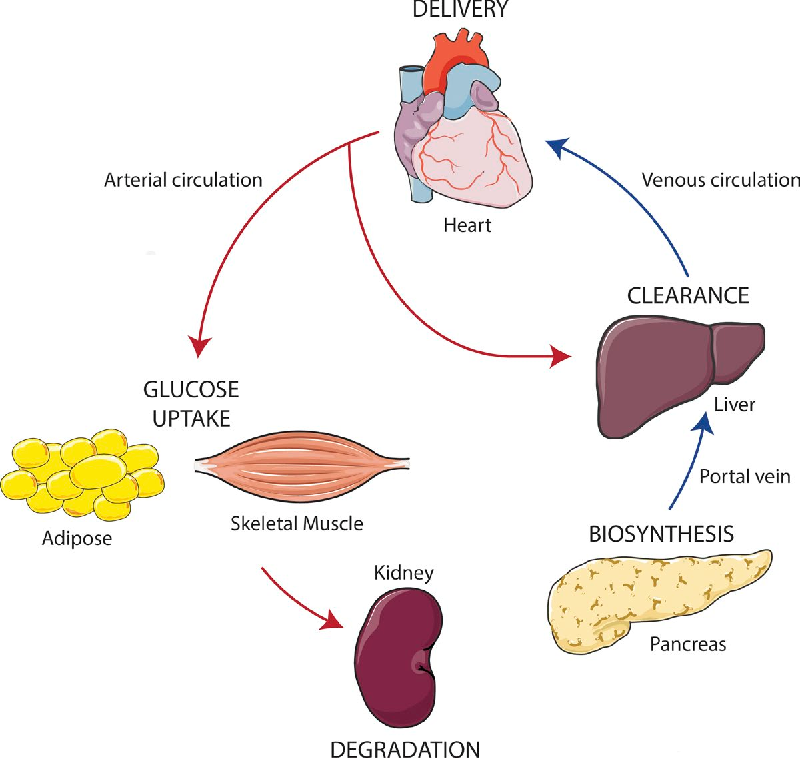The Importance of Sleep: Understanding the Nightly Symphony of Organ Activity
- Julien Boillat

- Jun 27, 2024
- 3 min read
Sleep is often underestimated, seen as a passive state where the body and mind simply rest. However, sleep is an active, dynamic period during which vital processes take place, orchestrating the repair, rejuvenation, and preparation of our bodies for the coming day. This nightly symphony involves the sequential activation of different organs, each playing a crucial role in maintaining overall health. Disrupting this cycle can have significant consequences for our physical and mental well-being.

The Sleep Cycle: An Overview
Sleep consists of several stages, including non-rapid eye movement (NREM) and rapid eye movement (REM) sleep, each contributing uniquely to our health. NREM sleep is divided into three stages:
Stage 1 (Light Sleep): This is the transition phase between wakefulness and sleep.
Stage 2 (Moderate Sleep): Heart rate slows, and body temperature drops. This stage prepares the body for deep sleep.
Stage 3 (Deep Sleep): The body repairs tissues, builds bone and muscle, and strengthens the immune system.
REM sleep, on the other hand, is when most dreaming occurs, and it plays a crucial role in memory consolidation and mood regulation.
The Nightly Activation of Organs
Let's delve into the specific times when different organs become active during the night and understand their roles.
9 PM - 11 PM: Thyroid and Immune System
As we transition into sleep, the thyroid gland starts to regulate metabolic functions, ensuring our body temperature and energy levels are optimal for the healing process. The immune system also becomes more active during this time, producing cytokines that help fight infections and inflammation.
11 PM - 1 AM: Gallbladder and Detoxification
The gallbladder becomes more active, aiding in the digestion of fats. This is also the time when detoxification processes begin, with the liver working to break down toxins and clear them from the bloodstream. A well-functioning gallbladder and liver are essential for metabolic health and overall detoxification.
1 AM - 3 AM: Liver - The Detox Powerhouse
The liver continues its detoxification processes, converting waste products into non-toxic substances that can be excreted. This period is critical for cleansing the body of toxins accumulated throughout the day. A healthy liver ensures the proper metabolism of nutrients and the removal of harmful substances.
3 AM - 5 AM: Lungs - Oxygenation and Repair
During these hours, the lungs are most active, repairing and rejuvenating their tissues. This is a crucial period for oxygenating the blood and eliminating carbon dioxide. Proper lung function ensures efficient gas exchange, which is vital for cellular health and energy production.
5 AM - 7 AM: Colon - Preparing for the Day
As morning approaches, the colon becomes more active, preparing for the elimination of waste. This is the body’s natural way of ensuring that the digestive system is clear and ready for the intake of new nutrients. A well-functioning colon supports digestive health and overall well-being.
The Importance of an Unbroken Sleep Cycle
Disrupting this natural cycle can have far-reaching effects on health. Here’s why it’s crucial to maintain an unbroken sleep cycle:
Physical Health: Continuous sleep allows the body to repair tissues, build muscle, and strengthen the immune system. Interruptions can lead to weakened immunity, increased inflammation, and slower recovery from illnesses.
Mental Health: Sleep is essential for cognitive functions, including memory consolidation, problem-solving, and emotional regulation. Poor sleep can result in impaired judgment, mood swings, and increased risk of mental health disorders such as anxiety and depression.
Metabolic Health: The body's ability to regulate hormones, including those that control appetite and stress, depends on a regular sleep pattern. Disruptions can lead to metabolic disorders like obesity, diabetes, and cardiovascular diseases.
Detoxification: The liver’s detoxification processes are most effective during uninterrupted sleep. Disturbed sleep can lead to a buildup of toxins, affecting overall health and vitality.
Conclusion
Sleep is far more than just a rest period; it's a complex, active process essential for maintaining health. Each organ plays a specific role during the night, contributing to a harmonious balance that prepares the body for the next day. By understanding and respecting this intricate cycle, we can improve our physical, mental, and metabolic health, leading to a more vibrant and productive life. Prioritizing good sleep hygiene and addressing sleep disorders can ensure that this nightly symphony continues to play in perfect harmony, night after night.





Comments